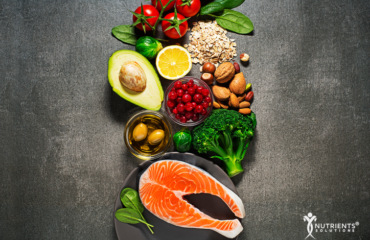Wellness Demystified: We Can Help You Discover Optimum Health
Antioxidants Explained: Definition and Health Benefits

Health and nutrition specialists have advised us to eat more vegetables and to increase our antioxidant intake. However, do we know why vegetables and antioxidants are good for our health? This article provides an introduction to antioxidants and free radicals.
Although the notion of antioxidants for better health has been around for a while, the concept remains obscure to most of us. Complicated names, such as “free radicals” and “oxidative stress,” are confusing for the average person, so we tend to dismiss the information. A simple definition of antioxidants and how they act will help us grasp the importance of these nutrients. To understand what antioxidants are, we must first know what they fight.
Oxygen is essential for human life, because it participates in the metabolic process of oxidation, providing energy for cellular activity. During oxidation, highly unstable molecules, called oxidants or free radicals, are produced. Also, exposure to environmental contaminants, such as smoke and radiation, facilitates the production of free radicals in our bodies.
Free radicals produce considerable damage, since they affect cell membranes, denaturalize proteins, oxidize lipids, fragment DNA chains, and cause cell death. This damage is called oxidative stress, and it’s the primary cause of aging and degenerative diseases, including cardiovascular disease, Alzheimer’s disease, Parkinson’s disease and cancer. Since free radicals affect us at the cellular level, the damage they cause may become irreversible and, in some cases, lethal.
The human body reduces the damage caused by free radicals by using compounds named antioxidants. They significantly reduce the adverse effects of oxidant molecules in our bodies, by reacting with them to form more stable molecules. In biological systems, there are several sources of antioxidants, such as enzymes, hormones, polyphenolic compounds and some vitamins. Plants are an excellent source of antioxidant compounds, which can be ingested through fruits and vegetables. Some examples of dietary antioxidants are vitamins C and E, beta-carotene, lutein and lycopene.
Antioxidants are naturally produced in our bodies to balance free radicals. However, this balance can be disrupted by illness or poor nutrition, leading to various ailments. Since fruits and vegetables are rich in antioxidant compounds, they have the power to fight oxidative stress. Processed food is not as effective because the quantity of antioxidants is significantly reduced during manufacturing. For this reason, it’s highly recommended to eat unprocessed food to maintain proper health. Taking nutritional supplements – vitamins and minerals – may help but must not be used in place of a proper diet.
For years, scientists have studied the impact of nutrition on disease, and it has been observed that people who eat more vegetables and fruits have fewer health problems. It has been recommended by several authorities to eat five and thirteen servings of fruits and vegetables per day—preferably unprocessed. Preventing illness through a healthy diet is a reasonable idea and one that may improve the overall quality of your life. Now that you understand the benefits of antioxidants, it’s time to start making changes to your diet.
© 2019 Nutrients Solutions, LLC. All rights reserved. Disclaimer: The information provided is for educational purposes only and does not constitute medical advice. Always seek the advice of your physician or qualified healthcare provider with any questions or concerns about your health. Check with your doctor before beginning any exercise program. Never disregard or delay seeking medical advice because of something you have heard or read in this article or the internet.












